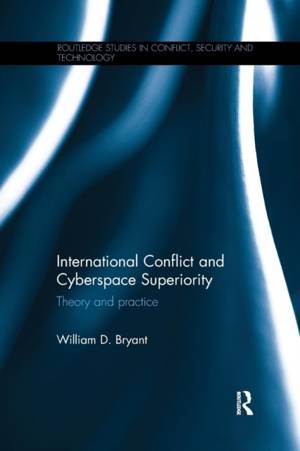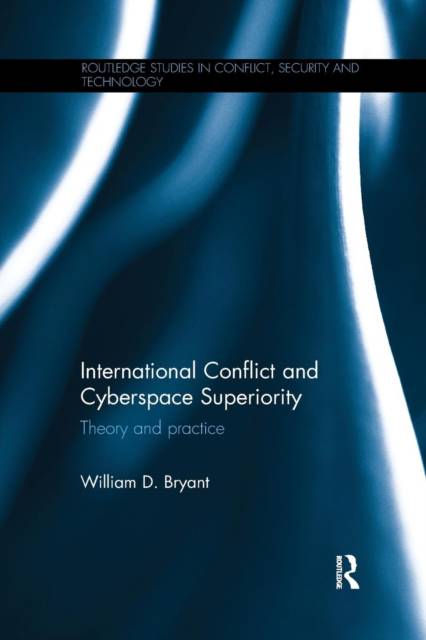
- Afhalen na 1 uur in een winkel met voorraad
- Gratis thuislevering in België vanaf € 30
- Ruim aanbod met 7 miljoen producten
- Afhalen na 1 uur in een winkel met voorraad
- Gratis thuislevering in België vanaf € 30
- Ruim aanbod met 7 miljoen producten
Omschrijving
This book examines cyberspace superiority in nation-state conflict from both a theoretical and a practical perspective.
This volume analyses superiority concepts from the domains of land, maritime, and air to build a model that can be applied to cyberspace. Eight different cyberspace conflicts between nation states are examined and the resulting analysis is combined with theoretical concepts to present the reader with a conclusion. Case studies include the conflict between Russia and Estonia (2007), North Korea and the US and South Korea (2009) and Saudi Arabia and Iran in the Aramco attack (2012). The book uses these case studies to examine cyberspace superiority as an analytical framework to understand conflict in this domain between nation-states. Furthermore, the book makes the important distinction between local and universal domain superiority, and presents a unique model to relate this superiority in all domains, as well as a more detailed model of local superiority in cyberspace. Through examining the eight case studies, the book develops a rigorous system to measure the amount of cyberspace superiority achieved by a combatant in a conflict, and seeks to reveal if cyberspace superiority proves to be a significant advantage for military operations at the tactical, operational, and strategic levels.
This book will be of much interest to students of cyber-conflict, strategic studies, national security, foreign policy and IR in general.
Specificaties
Betrokkenen
- Auteur(s):
- Uitgeverij:
Inhoud
- Aantal bladzijden:
- 240
- Taal:
- Engels
- Reeks:
Eigenschappen
- Productcode (EAN):
- 9781138893191
- Verschijningsdatum:
- 27/02/2017
- Uitvoering:
- Paperback
- Formaat:
- Trade paperback (VS)
- Afmetingen:
- 156 mm x 234 mm
- Gewicht:
- 358 g

Alleen bij Standaard Boekhandel
Beoordelingen
We publiceren alleen reviews die voldoen aan de voorwaarden voor reviews. Bekijk onze voorwaarden voor reviews.











